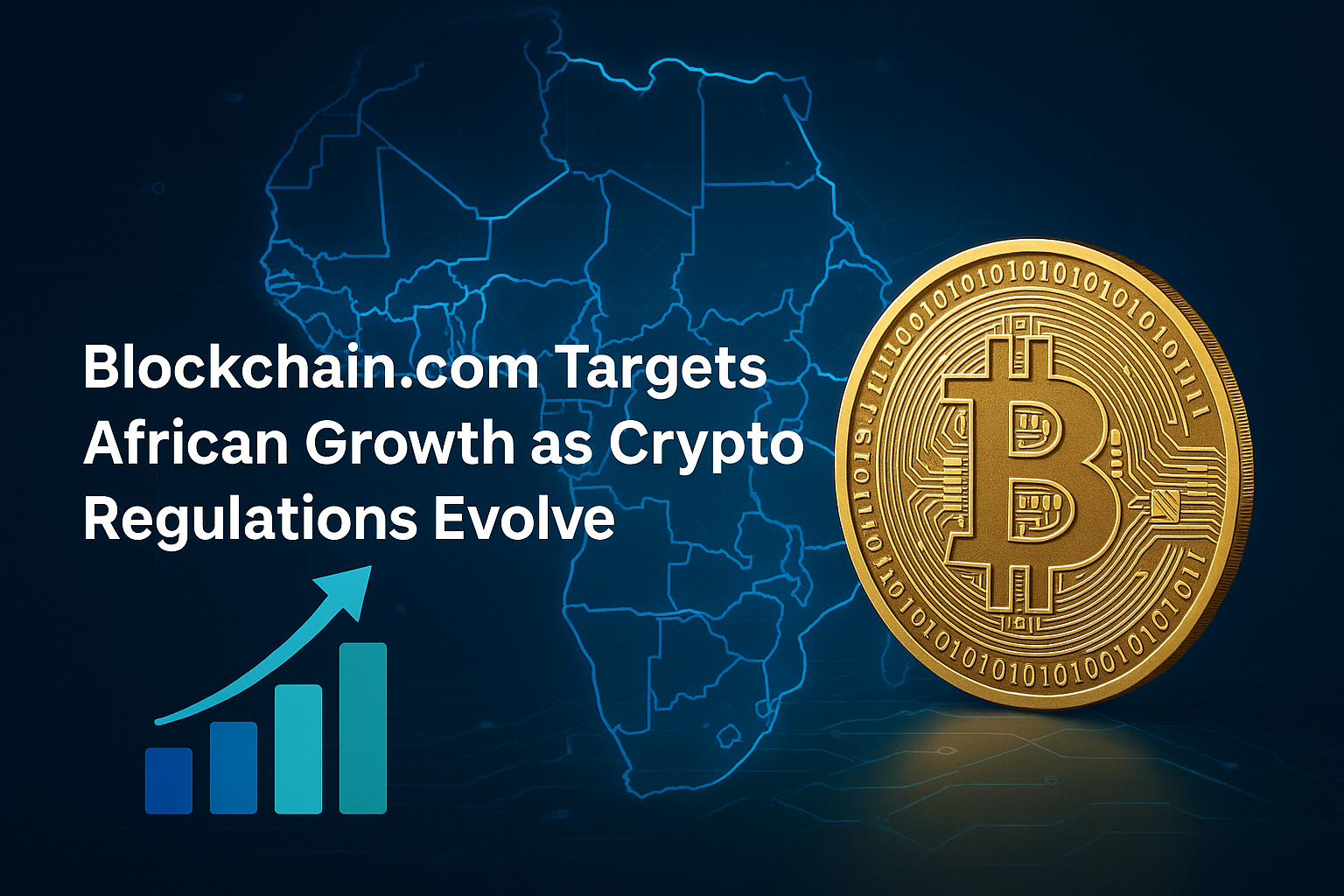
Betting on Africa’s Crypto Future
Blockchain.com, a leading crypto wallet and exchange provider, is setting its sights on Africa as the next frontier for digital asset adoption. With shifting regulatory landscapes and a growing appetite for decentralized finance (DeFi), Africa is becoming an attractive market for crypto companies. Blockchain.com’s move signals confidence in the region’s potential to become a key player in the global crypto economy.
The company’s interest isn’t just speculative. It stems from real developments across several African nations that are beginning to welcome — rather than restrict — digital currencies. With a mix of regulatory progress, high mobile penetration, and an underbanked population, Africa presents a fertile ground for crypto innovation and expansion.
Nigeria Leads the Charge
Nigeria stands out as Blockchain.com’s primary focus in West Africa. Owenize Odia, the company’s general manager for Africa operations, shared plans to open a physical office in Nigeria by the second quarter of 2025. He emphasized that Nigeria is currently the platform’s fastest-growing market in the region.
This growth is supported by Nigeria’s progressive stance toward crypto regulation. The country recently enacted a new investment law that enables the licensing of crypto exchanges — a major shift from earlier restrictions. By taking meaningful steps toward regulatory clarity, Nigeria is positioning itself as a hub for crypto innovation on the continent.
Emerging Interest in Ghana and Kenya
Beyond Nigeria, Blockchain.com is also eyeing Ghana and Kenya as markets with significant potential. Ghana, in particular, is showing early signs of regulatory maturity. Odia noted that Ghana’s central bank has already drafted guidelines for regulating cryptocurrency platforms, aiming for implementation by the end of September 2025. This proactive approach could open up new opportunities for crypto businesses and investors alike.
Kenya, on the other hand, is still in the evaluation phase. Regulators there are carefully studying the crypto ecosystem before making firm policy decisions. While this cautious approach may delay immediate adoption, it also suggests that Kenya could implement a thoughtful and sustainable regulatory model in the near future.
South Africa’s DeFi Momentum
Among African nations, South Africa is currently leading the way in decentralized finance. According to a recent report from the Financial Sector Conduct Authority (FSCA), the country’s DeFi sector is gaining significant momentum. The total value locked (TVL) in South Africa’s DeFi platforms has surpassed $27 million and is expected to hit $180 million by 2028.
What’s driving this growth? The FSCA attributes it to increasing interest in payment solutions, which account for over half of DeFi usage in the country. Lending and borrowing make up around 47.6%, while decentralized exchanges contribute 33%. This data highlights the diverse and rapidly evolving nature of South Africa’s crypto economy, offering insights into where the broader African market might be heading.
The Road Ahead for Blockchain.com
Blockchain.com’s expansion plans reflect a broader trend of global crypto firms recognizing Africa’s untapped potential. As more countries move from restrictive stances to regulatory frameworks that support innovation, firms like Blockchain.com are well-positioned to capitalize on early entry into these markets.
However, the path is not without challenges. Regulatory ambiguity still looms in many African nations, and infrastructure gaps can pose hurdles to adoption. But with a strategic focus on countries that are actively creating regulatory frameworks — like Nigeria and Ghana — Blockchain.com seems committed to navigating the complexities and helping shape the continent’s digital finance future.
In a global landscape where regulatory uncertainty continues to affect crypto adoption, Africa’s emerging clarity and enthusiasm offer a rare bright spot. Blockchain.com’s bold move could very well set the tone for how major crypto firms engage with the continent in the years to come.
For more insights, visit us at qerra.news

